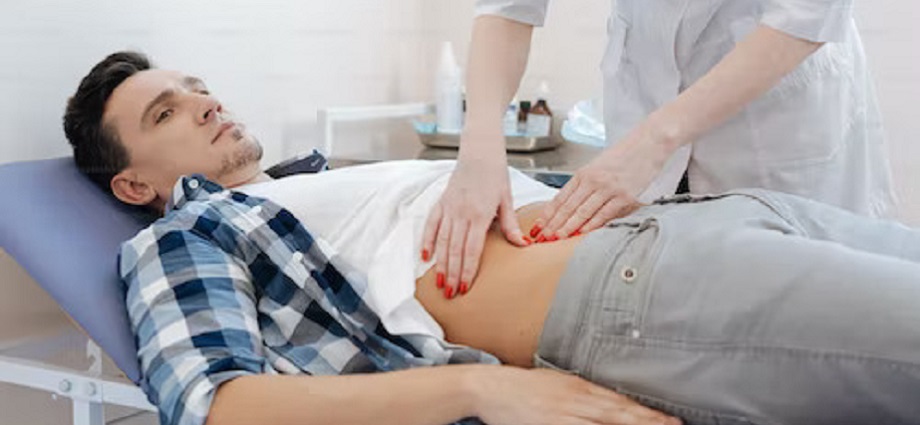Have you ever wondered what it’s like to pass a gallstone and see it in your toilet bowl? Passing gallstones in toilet can be a painful and uncomfortable experience, as you may have heard from others. However, some people may feel a sense of relief or even excitement upon finally passing the little stone and seeing it in the bowl.
Understanding Gallstones
Gallstones are hardened deposits of digestive fluid that form in the gallbladder, a small organ located just beneath the liver. They can vary in size from tiny grains of sand to large golf balls and can cause a range of symptoms, including pain, nausea, and vomiting.
Gallstones are made up of different substances, including cholesterol, bile pigments, and calcium salts. They can form when there is an imbalance in the composition of the bile, which can lead to the formation of crystals that eventually grow into stones.
What It Feels Like to Pass a Gallstone
Passing a gallstone can be a thrilling experience, especially if you’ve been dealing with the discomfort and pain associated with gallstones for some time. The sensation of the stone moving through your system can be intense, but the relief you feel when it finally passes is unparalleled.
Some people describe the feeling as similar to passing a kidney stone, while others liken it to giving birth. The pain can be sharp and sudden, or it can be a dull ache that lasts for hours or even days. But once the stone is out, you’ll likely feel a sense of euphoria and relief that makes the entire experience worth it.
Tips for Passing Gallstones with Ease
Here are some tips for passing gallstones:
- Try a gallbladder flush: Some people believe that drinking a mixture of olive oil and lemon juice can help flush out gallstones. However, this method is not backed by scientific research and may not be safe for everyone. Before trying a gallbladder flush, it’s important to talk to your doctor.
- Eat a low-fat diet: Eating a diet that’s low in fat and high in fiber can help prevent the formation of new gallstones and make it easier for existing ones to pass. Make a priority to consume fruits, vegetables, whole grains, and lean sources of protein in your diet.
- Exercise regularly: Regular exercise can help keep your digestive system running smoothly and prevent the formation of new stones. Strive to engage in moderate-intensity physical activity for at least 30 minutes on most days of the week.
- Seek medical attention if you experience complications: While passing a gallstone is usually a relatively harmless process, complications can occur. If you experience severe pain, vomiting, or other symptoms, it’s important to seek medical attention right away.
Why Passing Gallstones is Exciting
While passing a gallstone may not be the most pleasant experience, there’s something undeniably exciting about seeing that little stone in the toilet bowl. It’s a tangible reminder of what you’ve been through and a sign that you’ve conquered something that was causing you discomfort and pain.
Passing gallstones in the toilet can also be a wake-up call to take better care of your health. Making dietary changes, exercising regularly, and staying hydrated can all help prevent the formation of new stones and keep your digestive system running smoothly.
Why It’s Important to See a Doctor
While passing gallstones can be an exciting experience, it’s important to note that it can also be dangerous. In some cases, passing a gallstone can lead to complications such as infection or blockage of the bile ducts. Additionally, some people may have underlying health conditions that contribute to the formation of gallstones, such as diabetes or liver disease.
That’s why it’s important to see a doctor if you’re experiencing symptoms of gallstones. Your doctor can perform tests to diagnose the condition and recommend a treatment plan that’s right for you. They can also monitor your progress and make sure that passing the stones is not causing any additional health problems.
In conclusion, passing gallstones in the toilet may not be the most glamorous experience, but it’s one that can be surprisingly thrilling. If you’re dealing with gallstones, know that you’re not alone and that there are things you can do to ease the process. Stay hydrated, manage your pain, and embrace the experience for what it is – a triumph over discomfort and pain.
Frequently Asked Questions
Can you pass gallstones in the toilet?
Yes, it is possible to pass gallstones in the toilet. However, it is important to note that passing gallstones can be painful and may require medical attention.
How do gallstones pass through the body?
Gallstones can pass through the body in a few different ways. Sometimes, they may pass through the bile duct and be excreted in the stool. Other times, they may cause a blockage in the bile duct, leading to severe pain and requiring medical treatment.
Is it common to pass gallstones in the toilet?
While it is possible to pass gallstones naturally, it is not very common. Most people require medical treatment to remove gallstones.
Can passing gallstones in the toilet be dangerous?
Passing gallstones in the toilet is usually not dangerous. However, if a person experiences symptoms such as fever or chills, it could be a sign of an infection or other complication and they should seek medical attention immediately.

